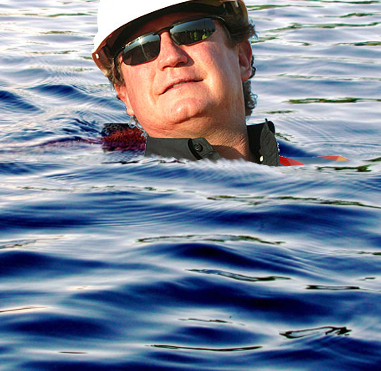Sackings and setbacks at FMG
 Andrew Forrest's ambitious venture into green hydrogen has faced a significant setback, resulting in job losses and project delays.
Andrew Forrest's ambitious venture into green hydrogen has faced a significant setback, resulting in job losses and project delays.
Fortescue Metals Group (FMG) has announced plans to lay off up to 700 workers and delay its target of producing 15 million tonnes of hydrogen fuel by the end of the decade.
This decision has sent ripples through Canberra, coming just after the Albanese government’s push to establish a hydrogen hub in Western Australia's Pilbara region.
Forrest, who has often engaged in public disputes with other high-profile entrepreneurs like Elon Musk, says he remains steadfast in his commitment to hydrogen.
He has attributed the need for rapid change to the rise in power prices triggered by geopolitical tensions, specifically citing Vladimir Putin's invasion of Ukraine.
“We need lower power prices,” Forrest says.
“Hydrogen is directly a function of the electricity cost. If the electricity cost is high, then we can't make hydrogen cheaply enough to compete with fossil fuels.”
This rationale has been met with scepticism, considering that green hydrogen should theoretically remain unaffected by fossil fuel price fluctuations in the long term.
The high costs of hydrogen production and Fortescue’s aggressive expansion into renewables, financed by its iron ore profits, have added to the company's financial pressures.
FMG investors and analysts have expressed long-standing concerns about the company's rapid foray into renewable energy.
The company's share price has dropped by nearly one-third since hitting a record high in late January, coinciding with frequent changes in senior management.
For renewable energy workers, the shift signifies uncertainty.
The job cuts, although framed as part of a strategy to maintain FMG’s “lean, impactful, and agile” operations, reflect broader challenges in the hydrogen sector.
The inefficiency of hydrogen fuel compared to battery electric vehicles and the high costs of hydrogen infrastructure further complicate its commercial viability.
The decision to cut jobs, particularly in a field touted as the future of clean energy, underscores the difficulties faced by workers in adapting to new energy technologies.
However, the job losses might not solely indicate a retreat from green hydrogen but could be a response to broader economic factors, such as the downturn in China's construction sector affecting iron ore demand.
While Forrest continues to advocate for his green vision, including the potential future production of green steel, the immediate impact on renewable energy workers is stark.








 Print
Print